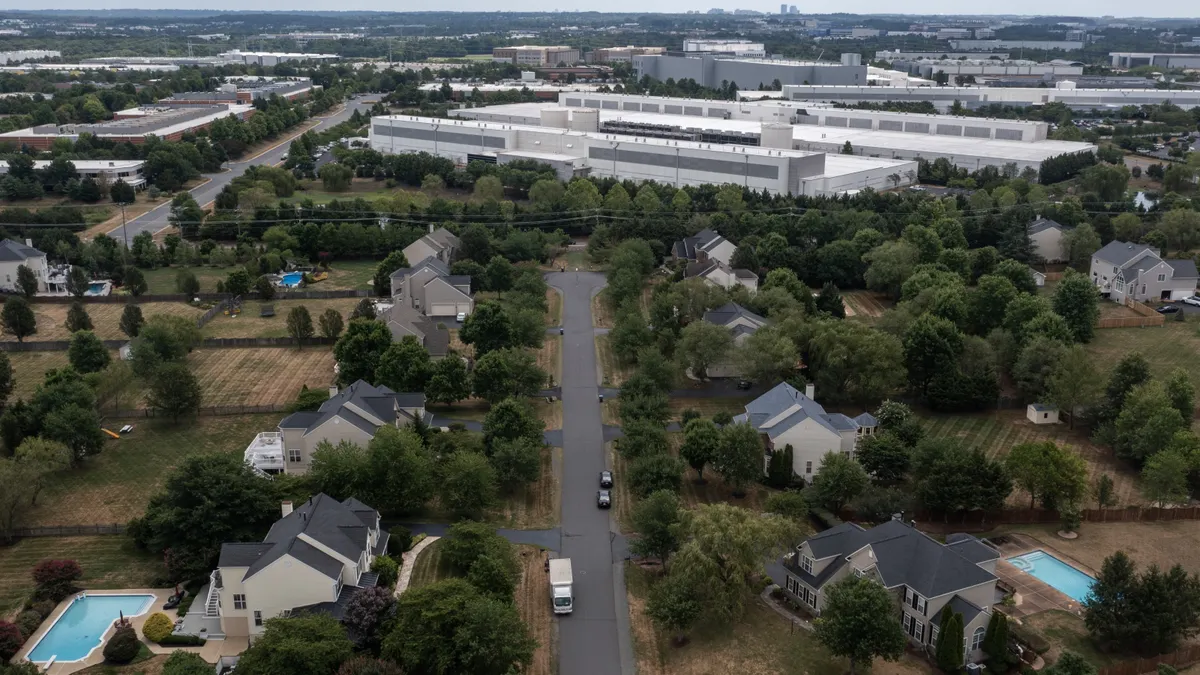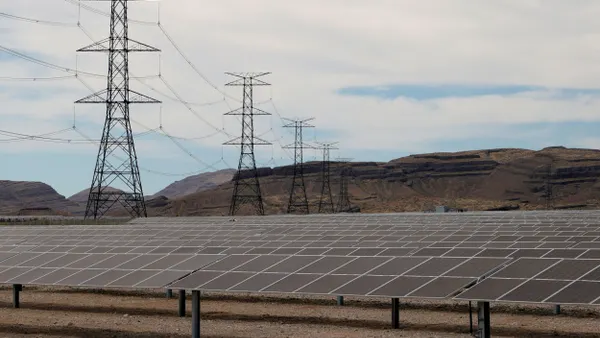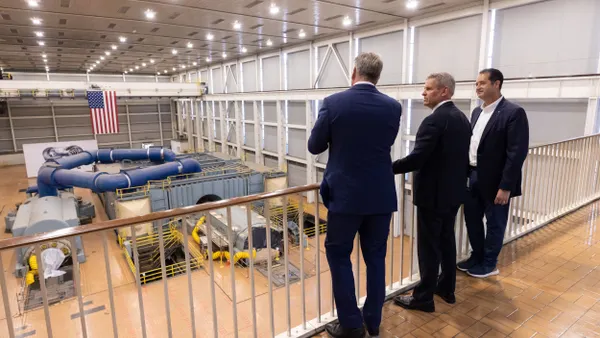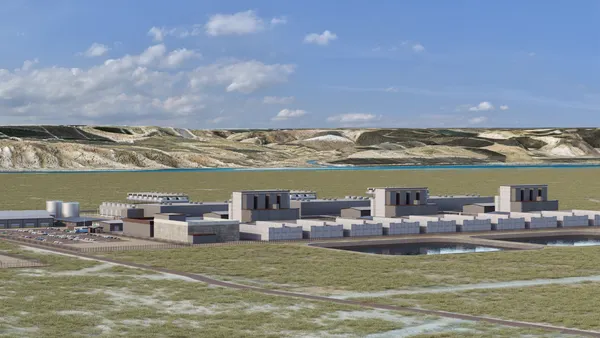Dive Brief:
- Executives of Santee Cooper and SCANA Corp. painted a dim picture for South Carolina lawmakers this week, as they explained why restarting construction at the abandoned VC Summer nuclear project is a long shot.
- According to Charlotte Business Journal, Santee Cooper CEO Lonnie Carter told the South Carolina Senate's V.C. Summer Nuclear Project Review Committee that when interest is included, costs to complete the project could reach $25 billion.
- Last month, Santee Cooper and SCANA Corp. announced they would abandon efforts to build two new nuclear reactors, with the project billions over-budget and years behind schedule.
Dive Insight:
If you are a close observer of the VC Summer boondoggle, than reports in both the Post & Courier and Charlotte Business Journal are worth your time. Both carry in-depth coverage of this week's hearing, the first time lawmakers have questioned utility heads about the project's demise. But among the more significant revelations: $4 billion in debt could be foisted onto South Carolina taxpayers, and there was never a comprehensive construction schedule for the project.
Santee Cooper is considering a sale of its 45% share in the project — but executives say it's unlikely a buyer would take the debt attached, meaning it would be left to ratepayers.
The commission heard testimony from Santee Cooper CEO Lonnie Carter and SCANA CFO Jimmy Addison. SCANA CEO Kevin Marsh was rushed to the hospital with kidney stones before he could speak with lawmakers.
Santee Cooper owns 45% of the project, and SCANA owns 55%. Both utilities put blame for the project's demise on Westinghouse, the now-bankrupt lead contractor.
Originally proposed in 2007, the two-reactor expansion of the Summer plant was supposed to be complete by 2018. But construction crews ran into problems with Westinghouse Electric's AP1000 reactor design, causing delays and cost overruns that led the nuclear developer to file for bankruptcy in March.
After taking over construction from Westinghouse, the utilities now say they would likely be unable to finish construction before the end of 2021 when a critical federal tax credit for nuclear energy is set to expire.













